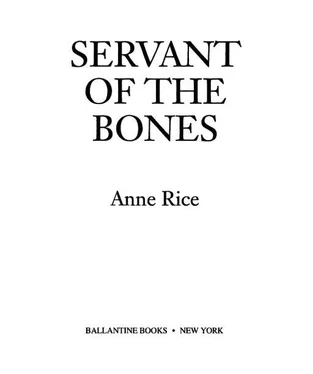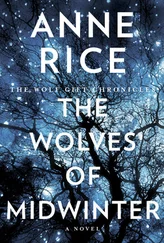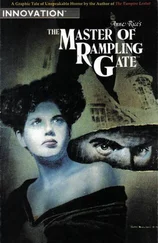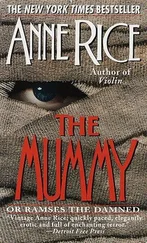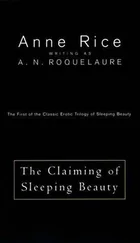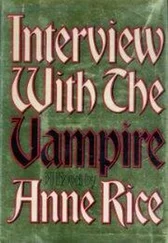Suddenly, as we began to climb together, she closed her eyes and stopped. She groped, sightless, for my neck with her hands and held me tight, as if feeling for the arteries in my neck. She was sick and in pain.
“I have you,” I whispered.
Ritchie, the driver, waited behind me, eager to help.
She caught her breath.
She rushed up the steps.
I had to hurry to catch up with her.
We entered a low doorway together, into a sanctum of intolerable sound. A young woman with brave, cold eyes said:
“Mrs. Belkin, your husband wants you to come home.”
“No, we’re going to my home now,” she said.
Two uniformed men stepped out of the front of the plane. I glimpsed a tiny chamber there, in the plane’s nose, full of buttons and lights.
The cold pale-eyed woman led me towards the back of the plane, but I took my time, listening so that I could be there if needed.
“Do what I tell you,” Rachel said. I heard the rapid capitulation of the men. “Get off the ground as soon as possible.”
The pale woman had left me standing beneath the roof and doubled back to stop Rachel. Ritchie, the loyal driver, hovered over Rachel.
“Leave the magazines and the papers there!” Rachel said. “What do you think, she’ll come back to life if I read about her? Get off the ground as fast as you can!”
There was a little chorus of weakening rebellion—men, women, even the elderly gray-haired Ritchie.
“You just come with me, that’s all!” she said, and once again the silence fell around her as if she were the Queen.
She took my hand, and I was led by her into a small chamber padded in glistening leather. Everything here was smooth. The leather was tender, and the place glowed with refinements: thick glass goblets on a small table, hassocks for our feet, deep chairs that would hold us as dearly as couches.
The voices died away, or sank low and conspiratorial, behind curtains.
The little windows were the only ugliness, so thick and scratched and dirty that they revealed nothing of the night outside. The noise was the night. The stars weren’t visible.
She told me to sit down.
I obeyed, sinking into an awkward couch of odoriferous dyed leather that caught me up as if it wanted to render me helpless and awkward, as a father might pick up his son by the ankle into the air.
We faced each other now in these scooped and oddly comfortable couches. I became used to it, the seeming indignity. I grasped that for the severity of the materials, this was a form of opulence. We were lounging here, like potentates. Brilliantly colored magazines lay on the table before us, one neatly overlapping the other. Folded newspapers that had been arranged in a carefully designed circle. Stale air blew upon us as if it were some sort of deliberate blessing.
“You really have never seen a plane before, have you?” she asked.
“No,” I said. “I don’t need them. This is all so very luxurious,” I said. “I can’t sit up straight if I wanted to.”
The woman with the pale cold eyes had come, and she was reaching down beside me for tethers, a strap with a buckle. I was fascinated by her skin and her hands. All of these people were so very nearly perfect. How?
“Safety belt,” said Rachel. She snapped the buckle of her own, and now she did a thing which seduced me.
She kicked off her shoes, her beautiful ornate shoes with their high thin heels. She pushed at them, one foot at the other, till they fell loose, and on her narrow white feet I saw the imprint of the straps that had covered her feet, and I wanted to touch them. I wanted to kiss them.
Was this perhaps one of the most well-developed bodies I’d ever had?
The cold woman looked at me uncomfortably and shifted, and then only reluctantly went away. Rachel ignored all this.
I couldn’t take my eyes off her, vivid and somber in the dim light of this sanctuary, this plane, and I desired her. I wanted to touch the inner flesh of her thighs, and see whether the fleece-covered flower there was as well preserved as everything else.
This was disconcerting and shameful. Another realization came to me. Diseased things can be so beautiful. Perhaps a flame is a diseased thing, if you think about it, a flame dancing on its wick, eating up the wax beneath it, the way this disease was eating up her body from around her soul. She made a dazzling heat in her fever and the keenness of her mind.
“And so we fly in this,” I said, “we go up, and we travel faster than we can on the ground, like a javelin hurled through space, only we have the means of directing ourselves.”
“Yes,” she said. “It’s going to take us to the southern tip of this country in less than two hours,” she said. “We’ll be in my home, my little home which all these years has been mine alone, and there I’ll die. And I know it.”
“You want to?”
“Yes,” she said. “My head’s clearing even now. I can feel pain. I can feel his poison clearing from my system. Yes, I want to know it. I want to be a witness to what happens to me.”
I wanted to say that I didn’t think death was like that for most human beings, but I didn’t want to say anything I wasn’t sure of, and certainly nothing to bring her more pain.
She gestured to the woman, who must have been lingering somewhere behind me. The plane had begun to roll, presumably on its tiny wheels. It didn’t roll easily.
“Something to drink,” Rachel said. “What would you like?” And suddenly she smiled. She wanted to make a joke. “What do ghosts like to drink?”
I said, “Water. I’m so relieved that you asked me. I’m parched with thirst. This body is dense and delicately put together. I think it’s growing true parts!”
She laughed out loud. “I wonder what parts those could be!” she said.
This water had come. Lots of it. Glorious water.
The clear bottle was nestled in a huge bucket of ice, and the ice was beautiful. Ripping my eyes off the water itself, I stared at the ice. Of everything I had seen in this modern age, nothing, simply nothing, compared to the simple beauty of this ice, glittering and sparkling around this strangely dull container of water.
The young woman who had just set down this bucket of wondrous ice now drew the bottle of water out of it, so that the ice fell and crunched and made a gorgeous twinkling in the light. I could see that the bottle was made of something soft, not glass at all; it didn’t have the shimmer or the strength of glass; it was plastic. You could squash the bottle flat when it was empty. It was the lightest container for this water, like a bladder filled with milk strapped to a donkey, the thinnest, finest bladder you could find.
The woman poured the water into two glass goblets. Ritchie appeared. He bent down and whispered something in Rachel’s ear. It had to do with Gregory and his rage.
“We’re on schedule,” he said. He pointed to the magazines, “There’s something—”
“Leave all that alone, I don’t care, I’ve read it all, what does it matter? It comforts me that her picture is on every magazine cover. Why not?”
He tried to protest but she told him firmly to go. The plane was taking off. Someone called him. He had to buckle up.
I drank the water, greedily, the way you’ve seen me drink. She was amused. The plane was leaving the ground.
“Drink it all,” she said, “there’s plenty of it.”
I took her at her word and drained the entire plastic bottle. My body absorbed all of this and was still thirsty, its strongest indicator of growing strength.
So what was Gregory doing? Fuming over the bones? Didn’t matter! Or did it?
It suddenly occurred to me that almost every delicate maneuver I had ever performed had been under the direction of a magician. Even taking a woman, I’d done with their grudging leave. I could rise, I could kill, then dissolve. Yes.
Читать дальше
